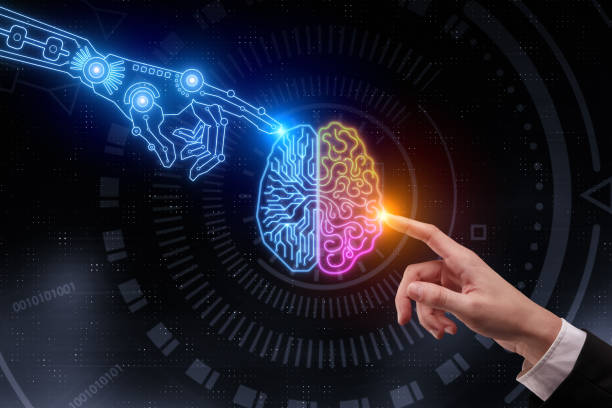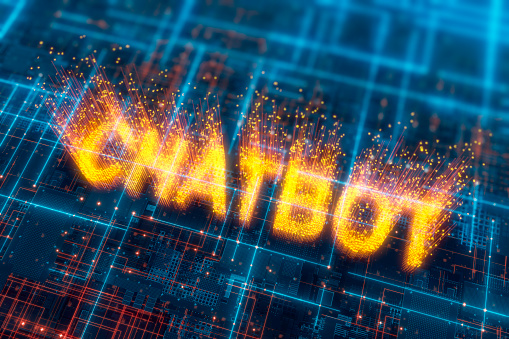 |
| Why Artificial Intelligence is Revolutionizing Our World |
Artificial Intelligence (AI) is transforming our world in ways we couldn't have imagined just a few years ago. From healthcare and transportation to education and entertainment, AI is revolutionizing every aspect of our lives. The adoption of AI has been increasing at an unprecedented rate, with new applications and use cases emerging every day. In this article, we explore the top 10 ways AI is changing the game and transforming industries. We examine the benefits and challenges of AI and discuss the implications of this technology for our future. Read on to discover why AI is the most significant technological breakthrough of our time.
Introduction to the AI Revolution
Artificial Intelligence (AI) is a broad term used to describe machines that can perform tasks that typically require human intelligence, such as understanding language, recognizing images, and making decisions. In recent years, AI has made significant strides in its capabilities and has become a key driver of innovation across various industries. From healthcare to education, AI is changing the game and revolutionizing the way we live and work.
Defining Artificial Intelligence
Artificial Intelligence refers to the ability of machines to simulate intelligent human behavior. This can be achieved through various techniques such as machine learning, natural language processing, and computer vision. The goal of AI is to build machines that can learn, reason, and make decisions on their own, without human intervention.
The History of AI
The idea of building intelligent machines dates back to the early days of computing. Researchers in the 1950s and 60s created the first AI programs, and since then, the field has grown rapidly. In recent years, advances in computing power, data storage, and machine learning algorithms have propelled AI to new heights, enabling it to tackle complex problems and make significant contributions to society.

AI in Healthcare: Saving Lives and Improving Health Outcomes
The healthcare industry is one of the fastest adopters of AI. AI has the potential to transform the way we approach healthcare, from diagnosis to treatment to patient care. Here are some ways AI is changing the game in healthcare:
AI-Assisted Diagnosis and Treatment
With its ability to process vast amounts of data quickly and accurately, AI is helping healthcare professionals diagnose and treat diseases more effectively. AI algorithms can analyze symptoms and medical images to identify potential health issues and suggest treatment options.
Drug Discovery and Development
AI is also being used to accelerate drug discovery and development. By analyzing large amounts of data, AI can identify potential drug candidates and predict how they will interact with the human body. This can help pharmaceutical companies bring new drugs to market faster and at a lower cost.
Electronic Health Records and Data Management
AI is also transforming the way health records are managed. With its ability to process vast amounts of data quickly, AI can help healthcare providers analyze patient data, identify trends and patterns, and make more informed decisions about patient care.
AI in Business: Enhancing Efficiency and Profitability
AI is also making significant contributions to the business world. From automating routine tasks to optimizing supply chain management, AI is changing the way businesses operate. Here are some ways AI is enhancing efficiency and profitability:
Automating Repetitive Tasks
One of the most significant benefits of AI for businesses is its ability to automate routine tasks. This can include anything from data entry to customer service to inventory management. By automating these tasks, businesses can save time and money, and free up employees to focus on more strategic activities.
Improving Customer Service
AI is also improving customer service. With chatbots and other AI-powered tools, businesses can provide 24/7 customer support and quickly respond to customer inquiries. This can lead to increased customer satisfaction and loyalty.
Optimizing Supply Chain Management
AI is also being used to optimize supply chain management. By analyzing data on inventory levels, shipping times, and demand forecasts, AI algorithms can help businesses make more informed decisions about inventory management, production scheduling, and logistics.
AI in Education: Transforming the Way We Learn
Finally, AI is transforming the way we learn. From personalized learning paths to automated grading and assessment, AI is helping students and educators alike. Here are some ways AI is changing education:
Personalized Learning Paths
AI is being used to create personalized learning paths for students. By analyzing data on student performance and learning preferences, AI algorithms can recommend individualized learning activities and resources to help students achieve their goals.
Intelligent Tutoring Systems
AI is also being used to create intelligent tutoring systems. These systems can provide students with immediate feedback on their performance, suggest areas for improvement, and adapt to their learning style.
Automated Grading and Assessment
AI is also being used to automate grading and assessment. By analyzing student work and providing feedback, AI algorithms can help teachers save time on grading and provide more personalized feedback to students.
AI in Transportation: Revolutionizing the Way We Travel
Artificial intelligence is bringing major changes to the way we travel. From autonomous vehicles to traffic management, AI is revolutionizing transportation. Here are some top ways AI is making an impact:
Autonomous Vehicles and Transportation Systems
AI is powering the development of autonomous vehicles, which have the potential to greatly reduce accidents and traffic congestion. Autonomous vehicles also hold promise for increased mobility for disabled individuals and senior citizens.
Traffic Management and Optimization
Using AI, traffic can be managed and optimized in real-time, reducing traffic congestion and improving traffic flow. With the help of AI algorithms, traffic signals can be adjusted based on traffic volume, weather conditions, and other factors.
Supply Chain Management and Logistics
AI is also transforming supply chain management and logistics. With the help of AI, companies can optimize routes for delivery vehicles, predict demand for products, and reduce shipping costs. This can lead to the faster, more efficient delivery of goods and services.
AI in Manufacturing: Increasing Productivity and Quality
In the manufacturing industry, AI is helping to increase productivity and quality. Here are some ways AI is making a difference:
Quality Control and Inspection
AI-powered cameras and sensors can quickly and accurately identify defects in products, saving time and reducing waste. This helps to ensure that products meet quality standards and are delivered to customers promptly.
Predictive Maintenance and Asset Management
By analyzing data from machines and equipment, AI can predict when maintenance is needed, allowing companies to perform maintenance before a breakdown occurs. This can prevent downtime and increase the lifespan of the equipment.
Supply Chain Management and Logistics
AI is also improving supply chain management and logistics in the manufacturing industry. With the help of AI algorithms, companies can predict demand for products, optimize inventory levels, and improve shipping and delivery times.

AI in Entertainment: Creating New Forms of Art and Media
AI is not just changing transportation and manufacturing; it is also creating new forms of art and media. Here are some ways AI is making an impact in the entertainment industry:
Artificial Creativity and Music Composition
AI can be used to create art and music, including generating unique pieces that would not have been created otherwise. This has the potential to open up new artistic possibilities and change the way we think about creativity.
AI-Assisted Film and Video Production
AI is also being used to assist with film and video production, including automating repetitive tasks such as color grading, editing, and sound mixing. This can save time and reduce costs, allowing filmmakers to focus on the creative aspects of their work.
Personalized Content Recommendations and Curation
Finally, AI is being used to personalize content recommendations and curation, allowing viewers to discover new content that is tailored to their individual tastes and preferences.

Challenges and Opportunities of the AI Revolution
While the AI revolution presents many opportunities, it also poses several challenges. Here are some of the major issues to consider:
Ethical and Social Implications of AI
As AI becomes more powerful and ubiquitous, there are concerns about its impact on society, including issues such as privacy, bias, and job displacement.
The Future of Work and Education
As AI changes the nature of work, there are concerns about job displacement and the need for new skills and education. It is important to consider how AI can be used to augment human abilities and create new opportunities for workers.
Regulation and Governance of AI
Finally, there is a need for thoughtful regulation and governance of AI to ensure that it is used in ways that benefit society as a whole. This includes issues such as safety, accountability, and transparency. By addressing these challenges, we can ensure that the AI revolution brings benefits to everyone. As we've seen in this article, AI is changing the world in remarkable ways, revolutionizing industries and bringing new opportunities and challenges. The potential of this technology is enormous, and its impact on our lives will only continue to grow. While there are still many ethical, social, and economic questions to be addressed, there is no doubt that AI is here to stay. As we navigate the opportunities and challenges of this new era, let us remember to keep an open mind and work together to harness the power of AI for the greater good.
Frequently Asked Questions (FAQ)
What is AI, and how does it differ from machine learning?
AI refers to the development of computer systems that can perform tasks that normally require human intelligence, such as visual perception, speech recognition, decision-making, and language translation. Machine learning is a subset of AI that focuses on building algorithms that can learn from data and make predictions or decisions without being explicitly programmed.
What are some of the ethical concerns around AI?
As AI becomes more integrated into our lives, there are growing concerns about its impact on privacy, security, and employment. There is also a risk that AI could perpetuate or amplify existing biases and inequalities in society. Additionally, questions have been raised about the accountability and transparency of AI systems and the potential for them to cause harm.
How is AI being used in healthcare?
AI is being used in healthcare to assist with diagnosis, treatment, drug development, and data management. For example, AI-powered medical imaging systems can help radiologists detect and diagnose diseases faster and more accurately. AI algorithms can also be used to develop new drugs and therapies by predicting how molecules will interact in the human body.
What is the future of AI?
The future of AI is both exciting and uncertain. AI will continue to transform industries and create new opportunities for innovation and growth. However, there are also concerns about the potential risks and challenges that AI poses, particularly in areas such as ethics, regulation, and governance. As AI continues to evolve, it will be essential to ensure that its development and deployment are guided by principles of social responsibility, transparency, and accountability.








0 Comments